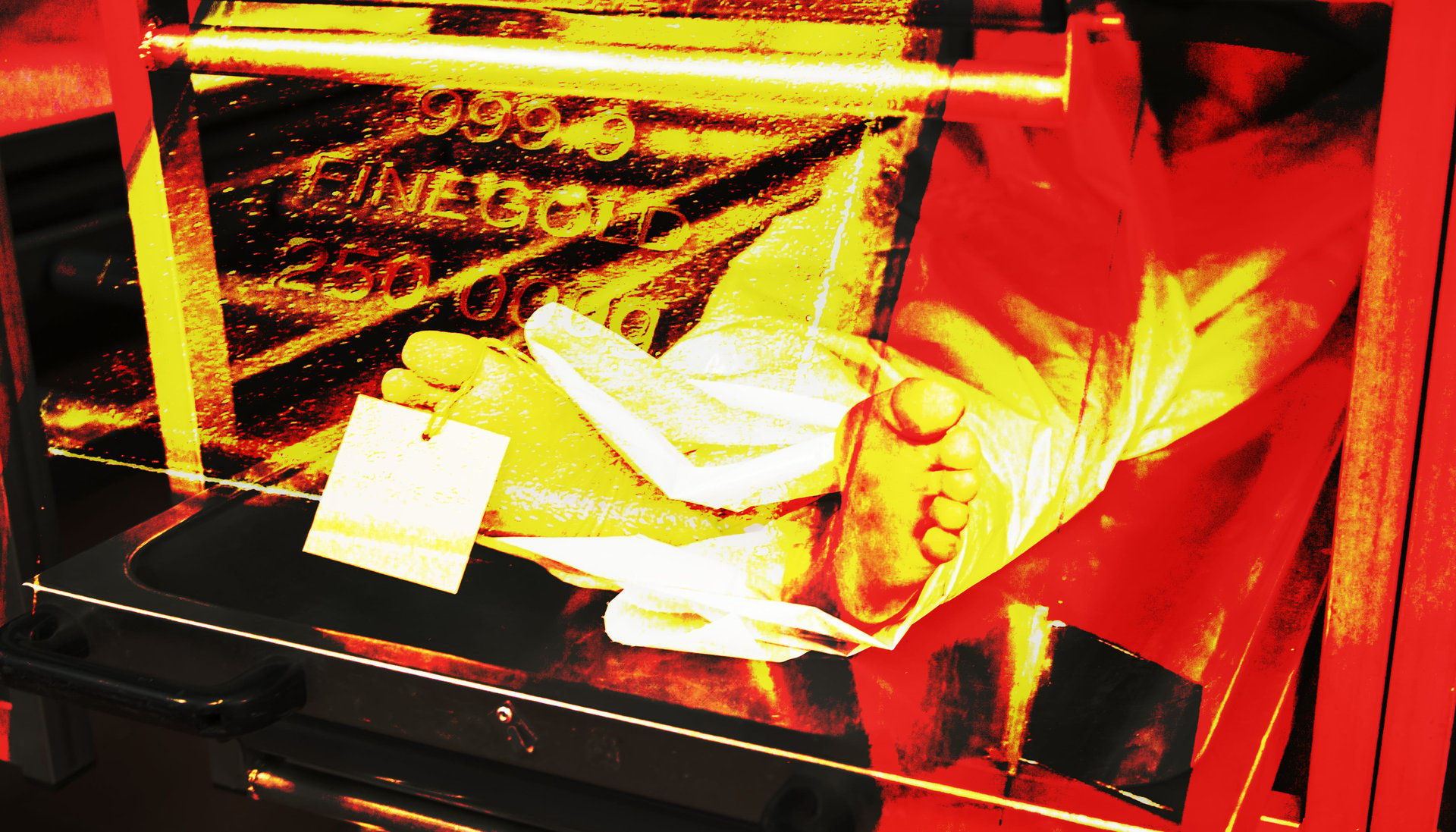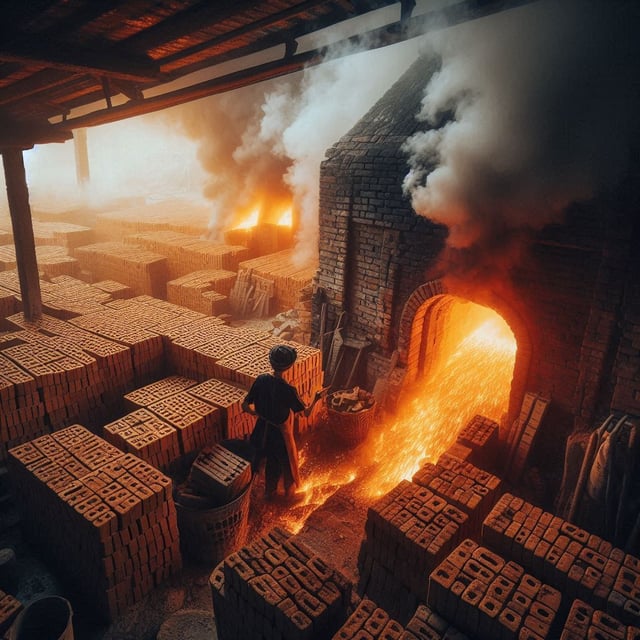Part II: Uncovering Bullion

Introduction
On March 3rd, 2018, police discovered the lifeless body of Sanam Shakya, shrouded in a towel, inside a vehicle. Shakya’s death initially appeared to be another tragic murder in the crime-ridden bordering area of Nepal. The Morang District Police Office promptly convened a press conference, unveiling the apprehended suspects and presenting a detailed account of the tragic incident.
Police then altered their initial statement as a result of a formal complaint that reached the Nepal Police Headquarters. The complaint stated that the local Morang Police neglected to investigate the case properly, and the Home Ministry in response, organized a special probe committee.
Shortly after, the Home Minister made a usual remark referring to an incident of over 30 kilos of gold being seized. His statement implied that they hoped to be catching “some big fish” as a result of the seized gold.
Social media went into a frenzy. Some users commented that the remarks were directed at the Prime Minister, and a Parliamentarian from Nepal Workers and Peasant’s Party (NWPP), Prem Suwal, inquired if the Prime Minister was behind the gold smuggling.
When the case didn’t reveal prominent politicians, a portion of the public was upset, assuming that the case was closed without a proper investigation. Nevertheless, the event did reveal a fascinating story.
Modulus Operandi
Rashtriya Prajanatara Party (RPP) Democratic leader Bhujung Gurung had been involved in gold smuggling for over three decades, dating back to the days of the Panchayat regime. The 64-year-old politician had smuggled 2-4 kg of gold from Bangkok to Kathmandu by concealing the precious metal in the restroom of Thai Airways planes. In 2013, Bhujung formed an alliance with Chunamani Upreti aka Gore.
Benu Shrestha, who formerly operated a jewelry shop in New Road, Kathmandu, came into contact with Gore. He subsequently sold the shop and relocated to the United Arab Emirates (UAE) to engage in the illegal shipment of gold. Similarly, Hari Sharan Khadka who had gone to UAE for employment, later turned to smuggling and became one of the five Nepalis supplying gold to Gore.
The gang collected money from Nepali citizens in Hong Kong to purchase gold, which would then be smuggled into Nepal. The smuggling would take place multiple times per month. During DIG Govind Niraula's tenure as TIA police chief, he was in contact with the smugglers.
Gore revealed that Senior Superintendent of Police (SSP) Shyam Khatri charged Rs. 50,000 per kg for facilitating the clearance of the smuggled gold from Tribhuvan International Airport (TIA). Khatri’s involvement aided in the smuggling of approximately 400-500 kg of gold.
Gore outlined three tactics for smuggling gold into the country.
The first method was to bring gold via Fly Dubai Airlines, storing it in Khatri’s chamber at the airport, and then transporting it away. The second method was to entrust gold to reliable passengers who would then take it to the pickup vehicle, the vehicle would then go to the garage, bypassing the security checks. The third method used a separate ladder at a Thai Airways plane to smuggle gold, avoiding formal channels of security checks. This ladder had the capacity to conceal 12 bars of gold, each bar weighing 2.6 kg.
Since 2015, the Gore gang has smuggled 3,800 kg of gold with a market value of Rs. 17 billion from Dubai through Tribhuvan International Airport in 421 trips.
However, the grand smuggling operation finally came to a halt after the unexpected robbery of 2018.
Ramesh Upreti, the brother of Gore, had sent gold from Dubai to Nepal on an Air Arabia flight. On January 21, 2018, 33.5 kilograms of gold entered Nepal. Two airport staff, Sanu Ban and Punya Prasad Lama Tamang, received the gold, eluding the airport's security measures, and transported the gold to Anamnagar.
They were supposed to hand it over to Gore’s office in Anamnagar, Kathmandu. However, at Anamnagar, five men stopped the duo, claiming to be police from Gaushala, and robbed them.
Upon learning about the robbery, Gore returned from India to retrieve the gold after hearing the news from Ban. The gold belonged to Mohan Kumar Agrawal aka MK, who had pressured Bhujung to find it. Bhujung, in turn, pressured Gore, even if it meant resorting to murdering a few people.
Ban was confident that Gurung had sent bouncers from bars in Kathmandu to commit the robbery.
Gore did not hesitate to go after them, the majority of them being mules, and during the torture, Gore made sure to document his questioning.
Gore had entrusted the responsibility of keeping the records of smuggled gold transactions to Sanam Shakya. He had warned Shakya not to meet his girlfriend, fearing that she might leak information. Despite the warning, Shakya continued to secretly meet his girlfriend without informing Gore.
Gore suspected Sanam Shakya when he learned Shakya was in Kathmandu on the day of the robbery since he had lied to Gore that he was out of town when in fact he was in the Capital. Shakya had actually come to Kathmandu from Biratnagar to meet his girlfriend.
On March 2, 2018, Gore ordered a hit on Sanam Shakya. He called Sub-Inspector Balkrishna Sanjel, his ally in the Metropolitan Police Crime Division, to get rid of the body.
Investigation, Arrest, and Imprisonment
Morang District Police created a report stating that Shakya was kidnapped and murdered in the southern part of Siraha for his involvement in gold smuggling.
They then held a press conference to make the suspects public and detailed the report of the incident. Later, the police changed their statement and said Shakya was actually in a different area, not where they initially stated. A complaint was filed with Nepal Police Headquarters, alleging that Morang Police had botched the investigation. In response, the Home Ministry formed a probe committee under the leadership of Joint Secretary Ishwar Poudel to investigate the matter. It was suspected police personnel were involved and changed their statement to help the mastermind, Gore, skip town, and run away. Police raided Gore's home in Baneshwor, where they found gold bars and cash in his clothes.
Premlal Chaudhary, a Nepal Airlines employee who worked for the gang, was arrested, but he committed suicide while in custody. This further raised suspicion about the involvement of police in trying to protect the kingpin.
On April 27, Interpol issued a diffusion notice against Gore, suspecting he was hiding in a foreign land. On May 22, Gore was arrested in India.
In the end, Gore and his accomplices were sentenced to life imprisonment.
Conclusion
Gold smuggling in Nepal has been prevalent due to the direct involvement of airport officials and security personnel. It also highlights cases where the crime is committed with the direct involvement of politicians, but only revealing parties from older, less relevant political agencies.
This may have occurred because the parties in power have the capacity to erase their links or establish a better umbrella of protection for their criminal syndicate.
These crimes have persisted for a long time, and the emergence of such sensational stories does not necessarily indicate a rise or decline in corruption. However, whenever such crimes are exposed, these incidents definitely serve as a deterrent and may encourage individuals to seek alternative paths rather than continue down the road of illegal activity.
Author
Kripendra Amatya, Researcher, Nepa~laya Productions
Editor
Dana Moyal Kolevzon, Director of International Relations, Nepa~laya Productions
Published Date
September 29, 2023



